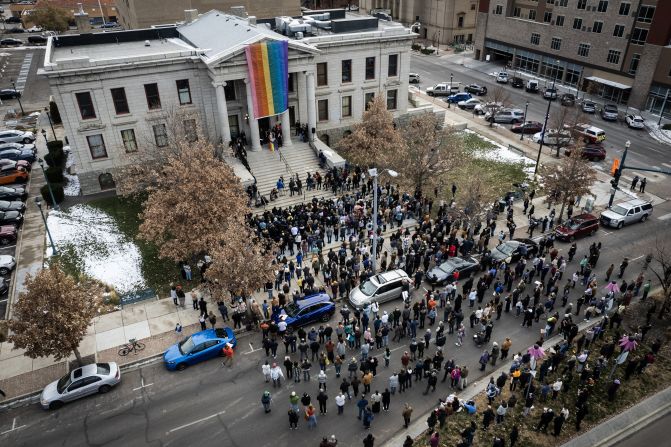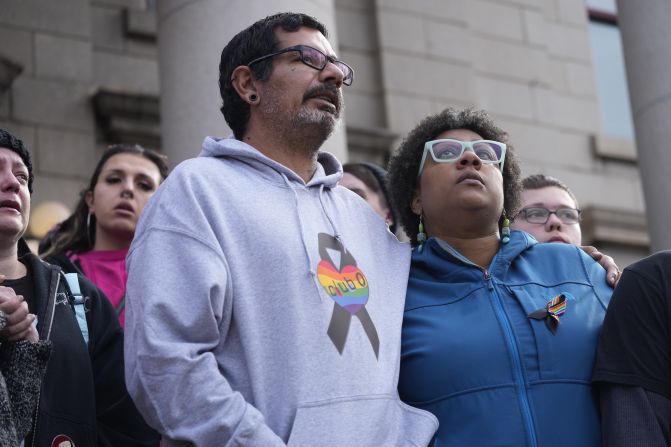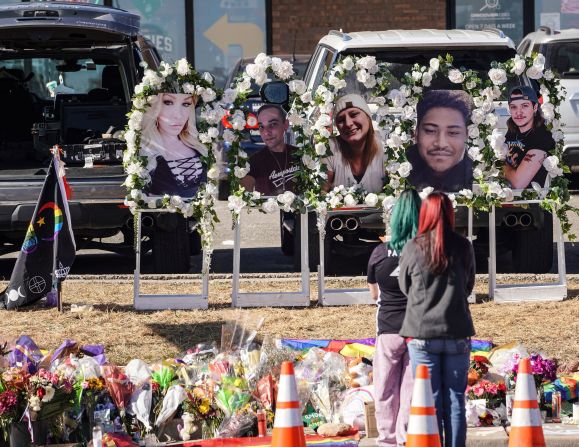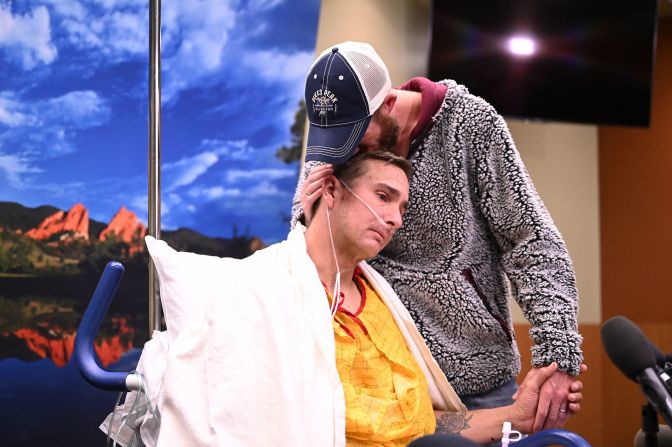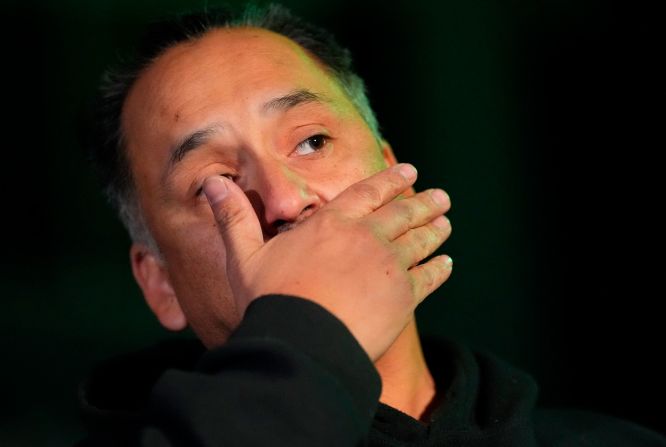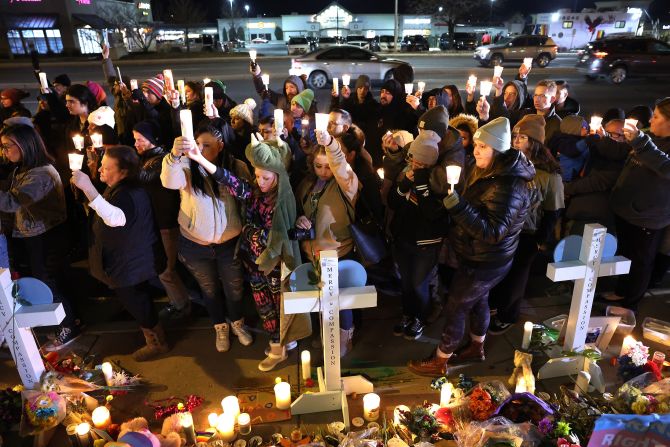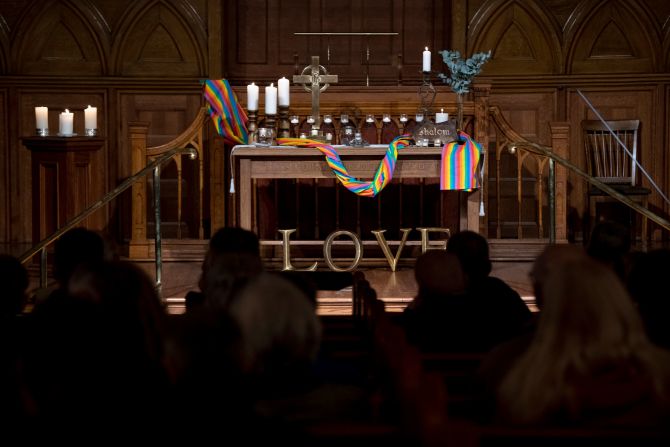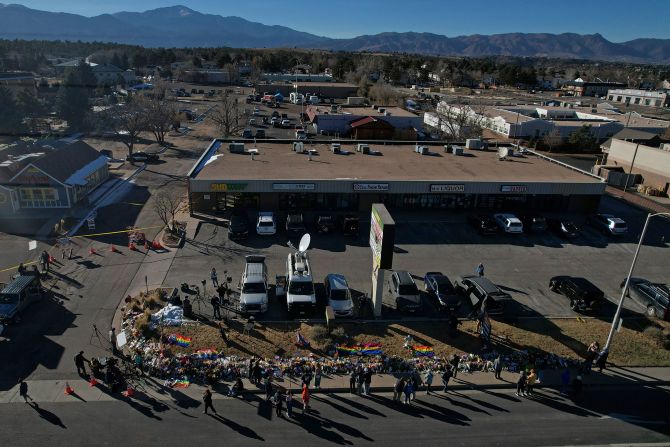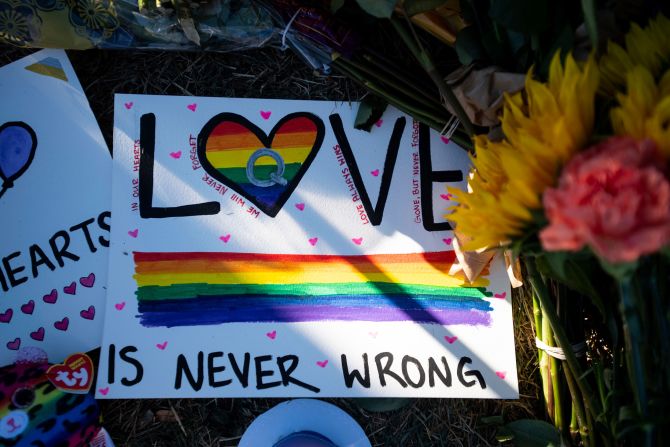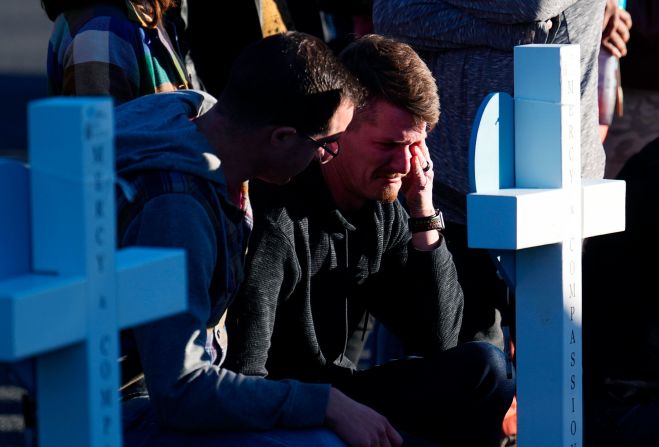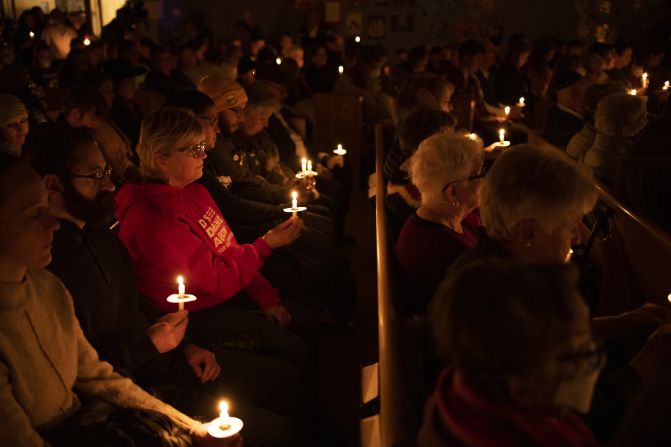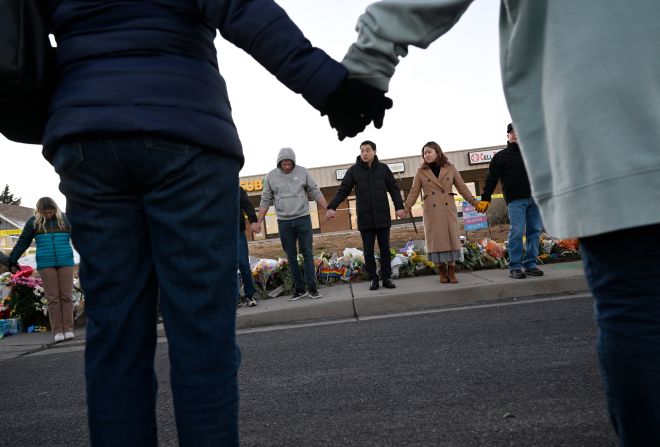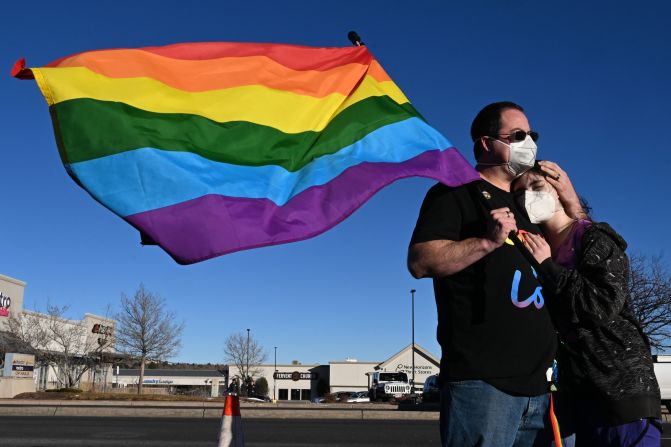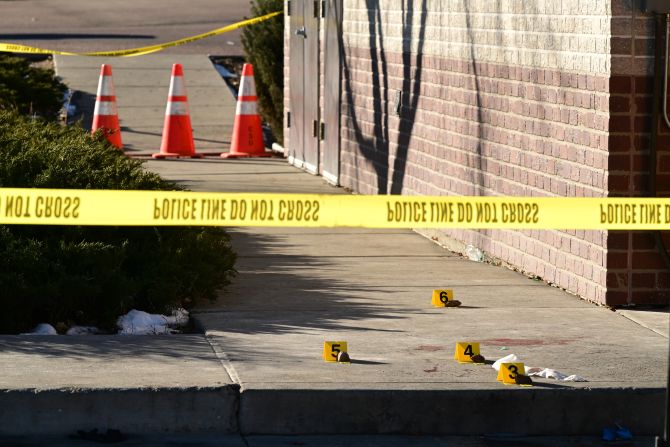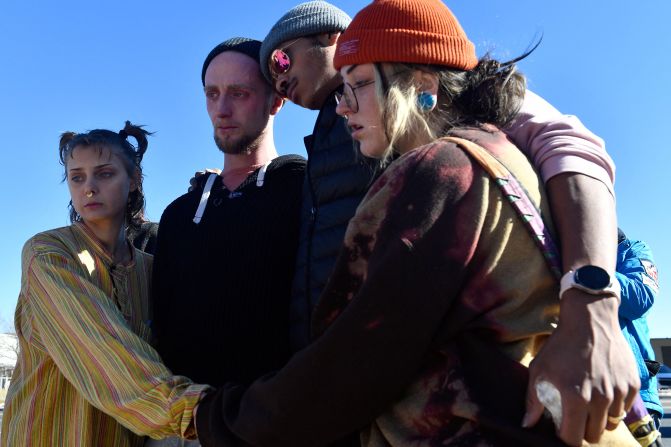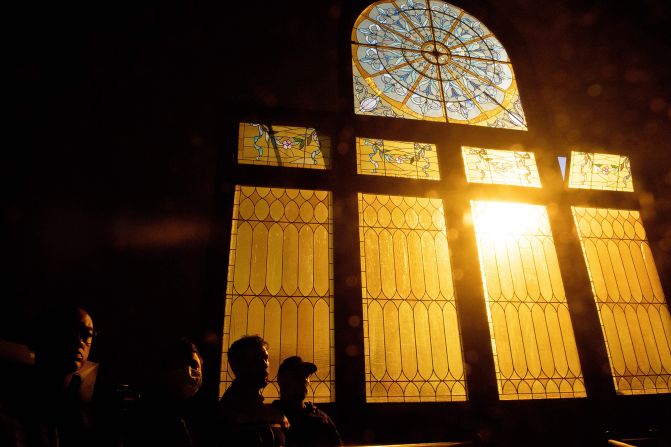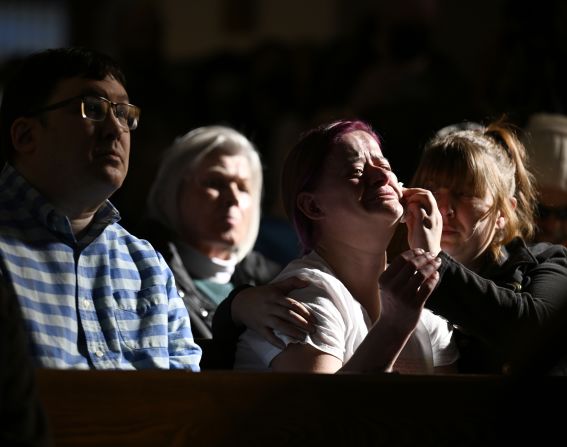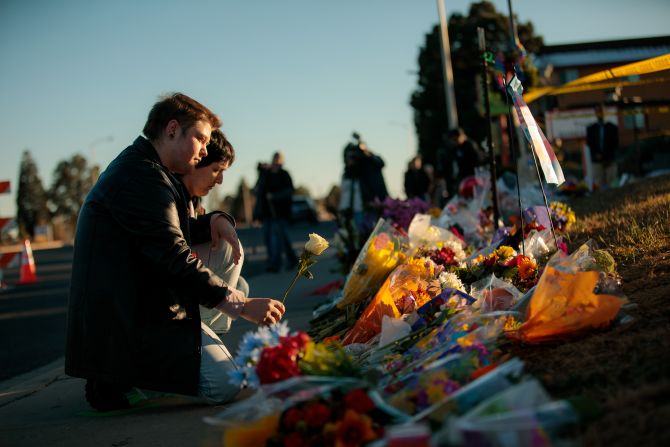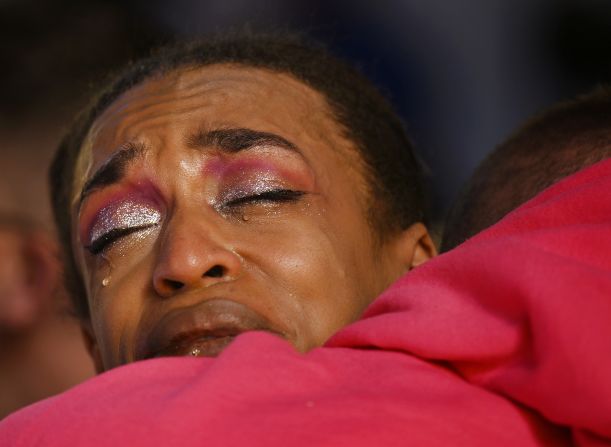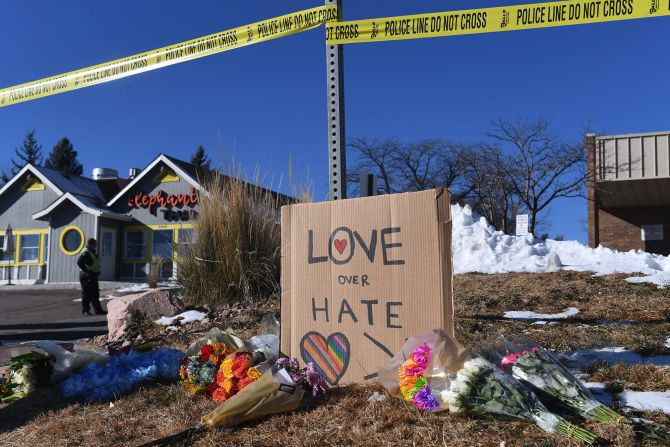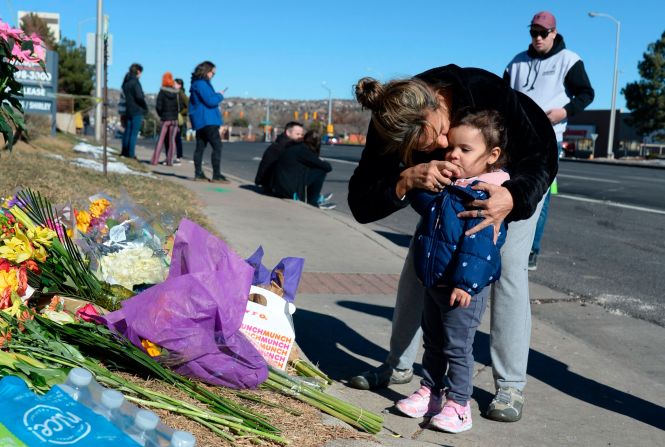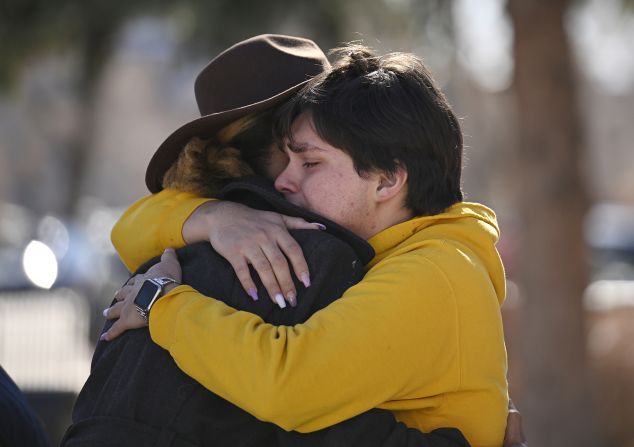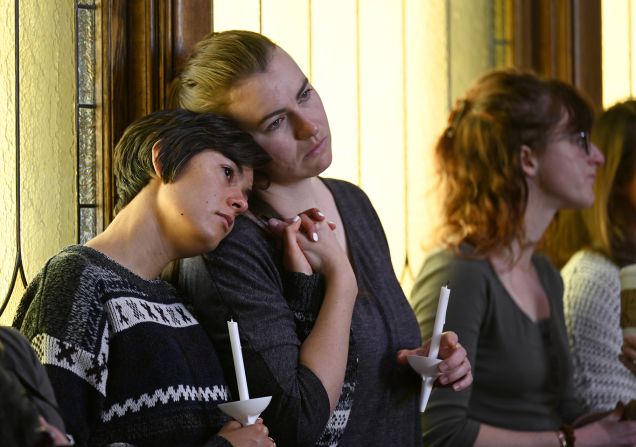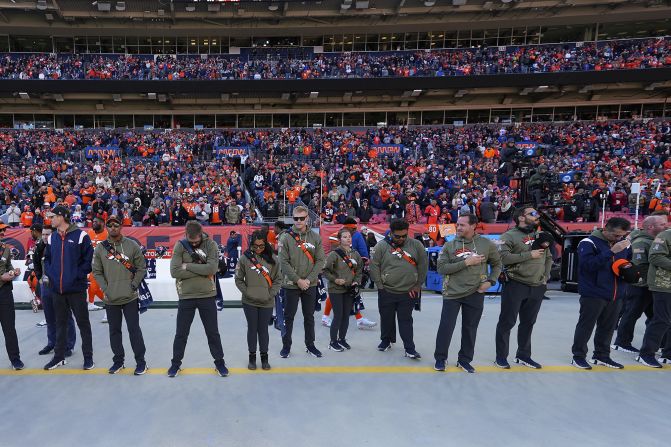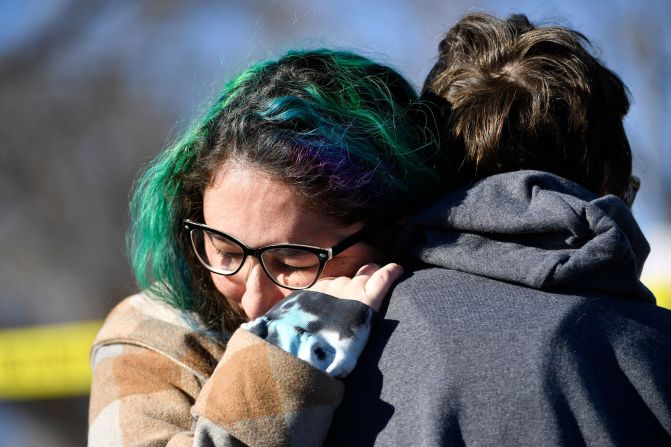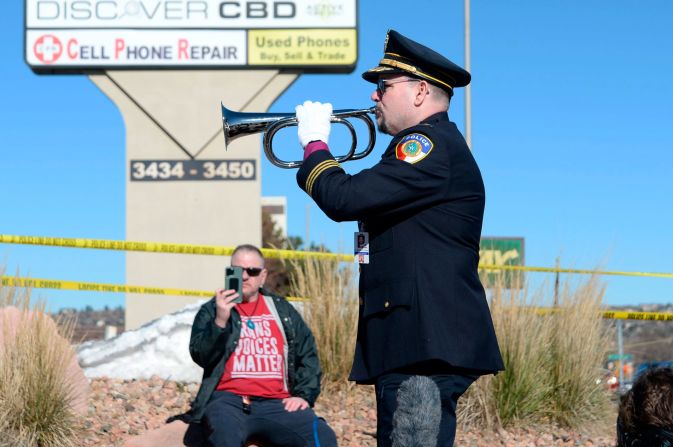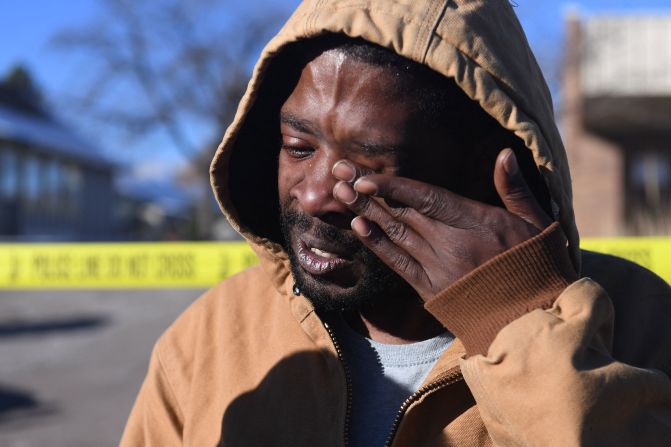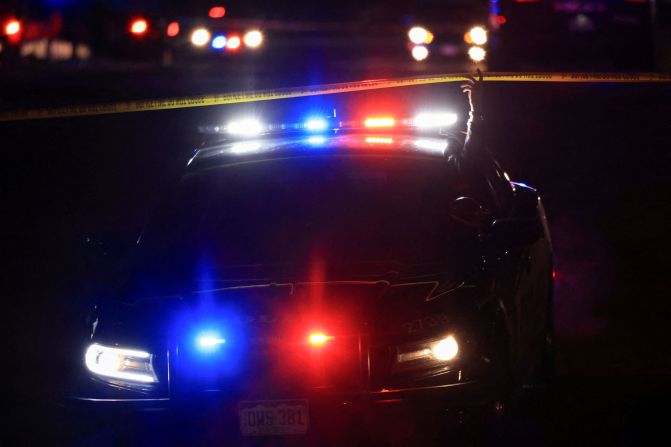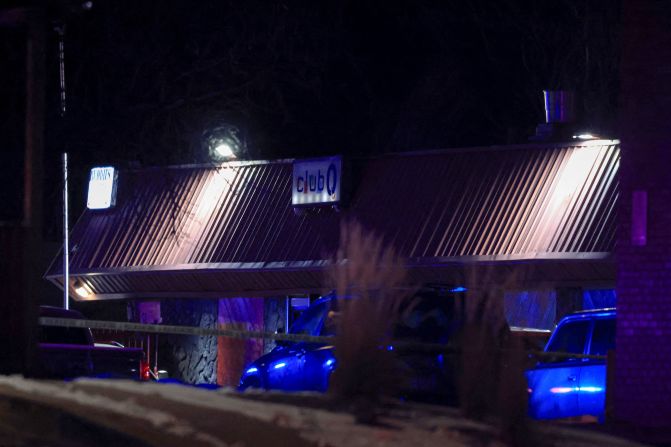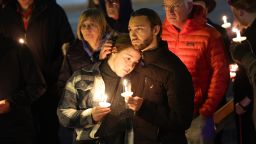Police chief Adrian Vasquez took a basic but still relatively uncommon step when announcing the names of the five victims killed at Club Q, the beloved LGBTQ nightclub in Colorado Springs.
Instead of relying on IDs or legal identifiers, Vasquez and the police department communicated with victims’ families through victim advocates, who provided the names and pronouns by which their loved ones were known, Colorado Springs Police Department spokesperson Pamela Castro told CNN in an email.
In a press conference earlier this week, Vasquez said he wanted to identify the victims “how they identified themselves, and how their families have loved and identified them.”
Using the right name seems less like a thoughtful gesture than an obvious sign of respect for a victim and their loved ones. But many police departments have misgendered LGBTQ victims of crime, particularly trans people, in investigations or press conferences. The Human Rights Campaign estimates that since 2013, police and media have misgendered 70% of trans people killed in violent attacks.
Colorado Springs shooting victims
Advocates say that ?when law enforcement or the media misgender a crime victim, it can add trauma and pain to a community that is already grieving. It can ?also perpetuate violence against LGBTQ people and reinforce the belief that trans people’s identities are not legitimate.Introducing the victims as they lived was a way to “represent them with compassion and dignity,” Castro told CNN.
“Police, media and public officials have a responsibility to lead with respect,” said Jay Brown, Human Rights Campaign senior vice president for programs, research and training, in a statement to CNN. “There must be a willingness to learn about the full lives of those taken from us – for the sake of respecting and honoring their lives.”
To be sure, ?most people share varying degrees of personal information with family, co-workers, friends, and other acquaintances – and that is, perhaps, especially true of people in the LGBTQ community. For some, concealing one’s name or gender identity may be a matter of personal safety or job security. This can make it difficult to discern whether police and media ?are using the right terms to describe them. But police making the effort to get it right, particularly now, when anti-LGBTQ rhetoric is rampant, is meaningful.
Here’s why it’s harmful to misgender LGBTQ victims of crime, and why it’s important that Colorado Springs policetook steps to honor LGBTQ advocates’ wishes and treat the Club Q victims with sensitivity and respect.
The harms of misgendering trans crime victims
Police will often rely on legal names to identify victims or suspects. But many trans people don’t use their legal names, even though many still use IDs that incorrectly list their name and gender. Some trans people don’t seek to change their legal names on identifying documents because of economic or logistical barriers, according to the ACLU. Refusing to acknowledge someone’s humanity in death “adds insult to injury,” according to GLAAD, “compounding the tragedy by invalidating the person’s lived reality.”
Misgendering a trans victim of crime can also thwart the delivery of justice. In a 2018 analysis, ProPublica found that in 74 out of 85 cases of murders of trans people, law enforcement agencies referred to the victims by the wrong name and gender. Incorrectly identifying a victim can slow down an investigation, confusing people who may have known them by the name they used in everyday life, the outlet reported.
In 2018, after three Black trans women were fatally shot in three separate instances in Jacksonville, Florida, the Jacksonville Sheriff’s Office repeatedly refused to refer to the victims by their correct names and pronouns, ProPublica reported. Referring to a trans person by a name they no longer use is often known as “deadnaming.” A man was sentenced in 2020 for the murder of one woman, but the other two deaths have not been solved.
The Jacksonville Sheriff’s Office told ProPublica it was following its policy at the time, identifying victims based on medical examiner reports and the victim’s state ID. The department also told ProPublica it would create an LGBTQ liaison program.
Many police departments lack training or specific policies for interacting with LGBTQ residents, according to a report on policing and LGBTQ people by the National LGBT HIV Criminal Justice Working Group, Lambda Legal and the National Center for Transgender Equality.
But even departments in cities with sizable LGBTQ populations, such as the Orange County Sheriff’s Department in central Florida, can be careless in their interactions with LGBTQ victims and witnesses: In 2018, when investigating the death of Sasha Garden, a Black trans woman, the sheriff’s office misgendered her and used descriptions that LGBTQ advocates said were damaging, the Orlando Sentinel reported. The Orange County Sheriff’s Department had previously responded to the 2016 mass shooting at Pulse, a popular gay nightclub in Orlando, where 49 people were killed.
In pictures: Mass shooting at LGBTQ club in Colorado
The Orange County Sheriff’s Department did not immediately respond to CNN’s request for comment on their handling of Garden’s case. In 2019, Brandon Ragan, one of the department’s LGBTQ liaisons, told WMFE, Orlando’s public radio station, that the department had made mistakes in its investigation into Garden’s death and would learn from them going forward.
The killings happened amid increasing anti-LGBTQ rhetoric and legislation
The shooting at Club Q occurred at a time when anti-LGBTQ sentiment continues to flare across the US. More than half of US states this year introduced legislation that targeted LGBTQ residents, with a focus on transgender children and teens. Much of the legislation aimed to limit trans youth’s access to gender-affirming health care or banned participation in school sports that aligned with their gender.
Many right-wing extremist groups have narrowed their focus on drag performers who read books to children at local libraries or other venues. Over the summer, members of the extremist group Proud Boys interrupted a drag queen story hour, and other groups have since protested the events or forced them to be canceled. Opponents of these events often use language that conflates drag performers with trans people and dehumanizes LGBTQ people.
Some conservative lawmakers and leaders have supported anti-LGBTQ legislation rooted in the same harmful anti-LGBTQ rhetoric espoused by extremist groups. Florida Gov. Ron DeSantis championed and later signed a bill this year that earned the nickname “Don’t Say Gay,” because it banned some public school teachers from discussing sexuality or gender identity with elementary school students. When the Senate recently voted to codify same-sex marriage, holdouts included influential GOP Sens. Ted Cruz and Marco Rubio of Florida.
Brandon Wolf, Equality Florida press secretary and a survivor of the Pulse nightclub shooting, said the killings at Club Q were the result of years of hateful rhetoric toward LGBTQ people.
“When you pump that demoralizing rhetoric into the atmosphere, when you supercharge the political environment to make it as hostile as possible toward LGBTQ people, someone has to pay the price,” he told CNN’s Jim Acosta on Sunday. “It may be short-term political gain, but with our community, it comes with real lived consequences.”
Police did not announce the Club Q shooting suspect’s motive, but they face five counts of first-degree murder and five counts of a bias-motivated crime causing bodily injury, court records show.
Lawyers for the suspect in the shooting said in a court filing Tuesday that their client is nonbinary and uses “they/them” pronouns?, marking the first time that information was public. (In a Monday press conference identifying the victims, department representatives refrained from using gender-specific pronouns to describe the suspect. Other local enforcement officials, including the El Paso County Sheriff’s Office – which has taken over custody of the suspect – continued to refer to the suspect using “he/him” pronouns ?after the filing stating their gender identity. CNN has reached out to the sheriff’s office for comment.)
Colorado Springs residents stand against hate
Colorado Springs once had a reputation as an unwelcoming place for LGBTQ residents. In the 1990s, the conservative Christian group Focus on the Family advocated to amend the Colorado Springs Constitution to make it illegal to prohibit discrimination based on sexual orientation. The amendment passed, and Colorado earned the nickname “the hate state,” according to the Colorado Springs Pioneer Museum. The US Supreme Court later struck down the amendment.
But in the face of anti-LGBTQ discrimination and hostility, many Colorado Springs residents established LGBTQ funds and advocacy groups, Colorado Springs Indy columnist Brandon Flanery wrote in 2020.
Club Q was Colorado Springs’ only remaining gay bar at the time of Flanery’s piece. (Icons, a downtown bar with singing staff, opened a year later in 2021.)
Stephanie Vigil was just elected to represent Colorado Springs in the state legislature. She said she’s seen and heard hateful anti-LGBTQ rhetoric from influential figures in Colorado Springs. But the shooting at Club Q only reinforced a commitment to defending LGBTQ constituents, Vigil said.
“We will never, ever, ever stop being who we are,” Vigil tweeted. “We will not go back into any closet. We will not take violence against our community and our families lying down.”
CNN’s Alaa Elassar, Elizabeth Wolfe and Theresa Waldrop contributed to this report.


